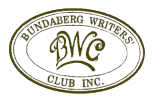
I’m enjoying a coffee, taking a breath, when a woman I met for an hour in a workshop more than a decade ago stops to say hello.
She asks me if I’m still working. I am. Writing isn’t something you retire from, though I’m trying to retire into it.
Her face lights up. Not often do I actually see a face light up but her joy seems luminescent. If you need a beta reader, she says, I’d love to read something for you.
Read something for me. What? What does that mean? No!
Ok, this scene is not true representation of the facts, but a blend of recent experiences. The one truth is that the term beta reader is being thrust at me from unexpected and unlooked for directions.
 Remain polite while declining offers like this. And no, not because you’re shy about your own writing, but because a beta reader has to work for you, not the other way around.
Remain polite while declining offers like this. And no, not because you’re shy about your own writing, but because a beta reader has to work for you, not the other way around.
And, not to make too many bones about it, some self styled beta readers take as their right the chance to fiddle with a manuscript.
Folks who appear at your writer’s shoulder as if by magic, or are as enthusiastic as a puppy being offered a walk, or who have decided it might be fun to dabble in the creative process… Those dear puppy-dog people have to be regarded with the same distrust as spam email offering you the world – if only you just say YES.
Stay right away from them.
True, a Beta reader can be any casual reader you can get your hands on. It’s best if they read the type of story you’re hoping to sell. They may have writing or publishing experience (again, in your area of expertise) but it doesn’t matter if they don’t, because a Beta reader gets your polished MS. The one you’ve tweaked and burnished and laboured over. The one you’re ready – almost ready – to send off to an agent or publisher.
Remember, they’re Beta readers and Beta means second. A Beta’s job is to read the MS for enjoyment, and to then point out the few (we hope) remaining flaws the author has overlooked during the rounds of rewrites.
 If you want any more than that, and you should, then you’ll need your Alpha reader.
If you want any more than that, and you should, then you’ll need your Alpha reader.
Yes, Alpha – not the biggest, not the meanest, not the most dominant, but an individual you trust first to tell you any ugly truths respectfully and honestly, and an individual who can speak from actual knowledge.
In fact Alphas will read the story long before it’s finished, give feedback during the writing process.
Why? Because Alphas can be trusted to ignore the fact the MS isn’t yet polished to a high sheen. They won’t waste their time mentioning typos, grammar etc. (you know, nuts and bolts errors you’ll clean up on subsequent edits).
Alphas can tell the difference between a scene still in outline and one fully fleshed (believe me, many Beta readers can’t) and will know, without asking, that you’re still working a scene over.
More than that, a good Alpha will agree to read your chapters as you rewrite and polish, because an Alpha knows their job is not a one read deal.
An Alpha is there for you. They are your first reader, and the one you trust. And for a long time they’ll be only one you trust enough for this job. Eventually you might have as many as three or four.

Once you’ve finished primping and polishing, then you turn to your Betas, plural. Hundreds of them if you have the time or are anal enough.
Betas bring a new focus. They haven’t been privy to MS development and can see where the author’s intensity, and the alpha’s depth of involvement, may have missed something. The Beta is the writer’s last line of defence.
They read your final draft once, tell you what they loved (a strength), what they hated (a weakness), and go back to their life. Compare reports from enough Beta readers and you can get a pretty clear idea of how the average reader will see the story.
Of course, you might want to cut a bit of red tape and mash up the alpha/beta job description – wait until your first draft is almost finished then ship it to as many readers as you can dig up, get some opinions, edit a little, send it out again, argue with the readers whose advice you didn’t follow because, when it came down to it, you really don’t trust them enough… and so on.
Or you can just face the fact that while Betas are ten a penny, you’ll never repay a good Alpha.

 Queensland Writers Centre (QWC) and Hachette Australia have announced a new program aimed at rural and regional Q’landia writers – the
Queensland Writers Centre (QWC) and Hachette Australia have announced a new program aimed at rural and regional Q’landia writers – the